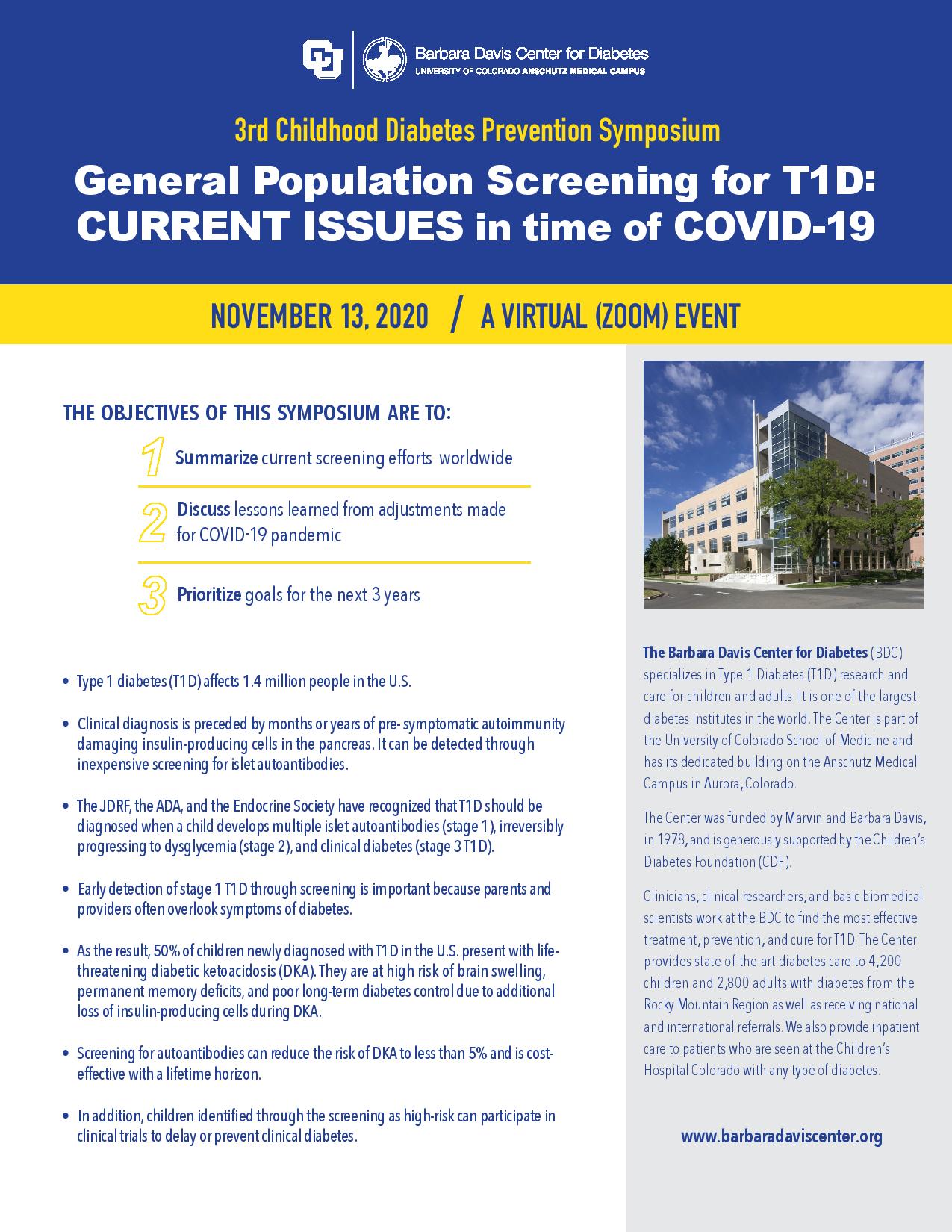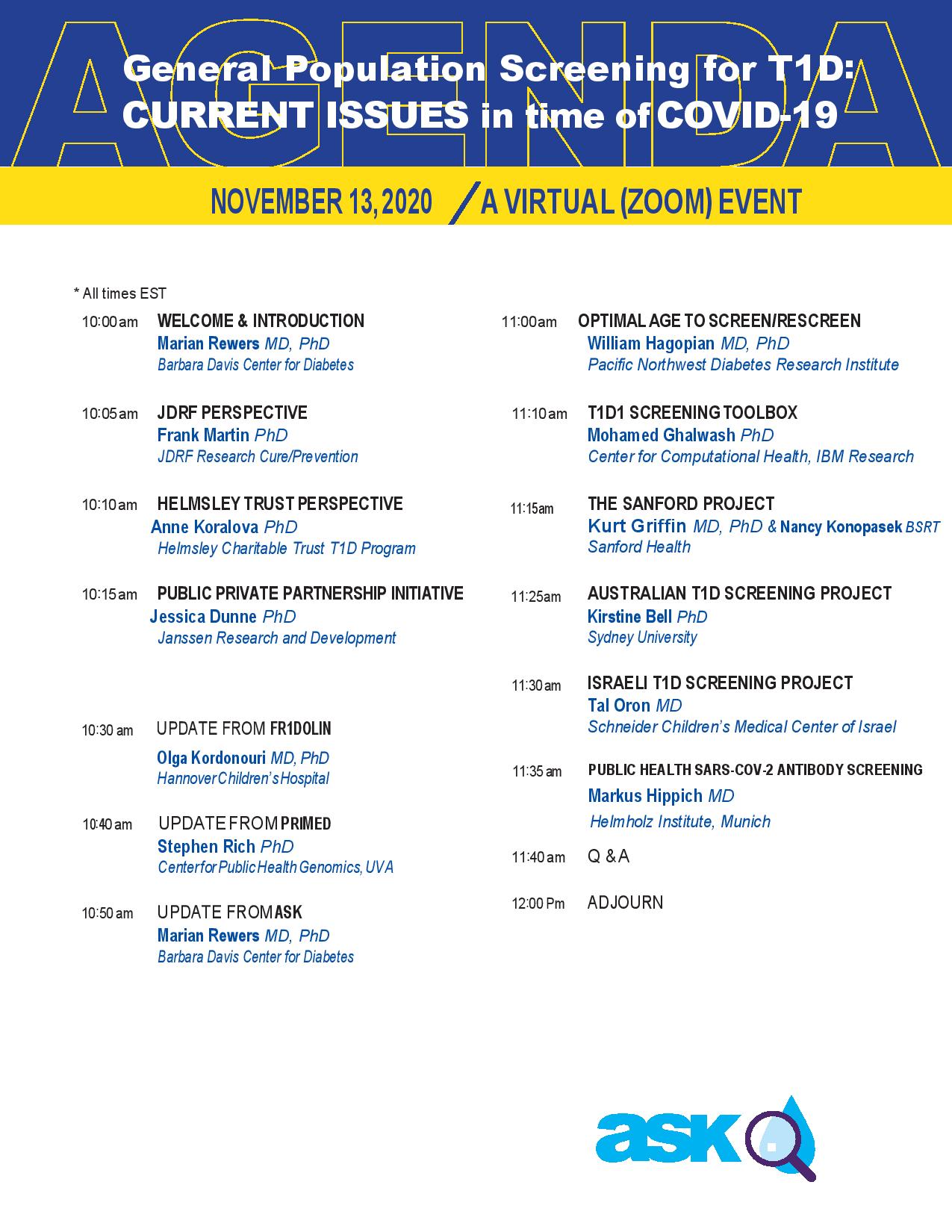3rd Childhood Diabetes Prevention Symposium
General Population Screening for T1D: Current Issues in the time of COVID-19
Q&A
Q: How important is it to ensure that risk data is not captured in medical records?
A: That may depend on country/insurance. In an ideal world, risk that is documented in the medical record would help providers recognize early symptoms and initiate treatment early.
Q: What is the age for the initial screening in ASK?
A: All children aged 1-17.99 years old are eligible. if negative, they may be re-screened at least 1 year later. >600 have been re-screened
Q: For the ASK study - what was the threshold to differentiate high from low affinity single autoantibody positives? I'm assuming after single autoantibody detection, affinity studies with well-validated purified protein (for the particular antigen) was conducted to determine a concentration curve of affinity?
A: The ECL assay detect only high-affinity autoantibodies (previously published); in this mass screening program we assume that ECL+ results confirms high-affinity, but we do not determine affinity directly - this would be way too expansive and would require more serum.
Q: For Sanford- what data is going into the participant's medical record?
A: The autoantibody results (T1D & Celiac) are reported back via Epic EMR. Parental worry questionnaires can also be found there, which can help direct supportive services.


767 KB